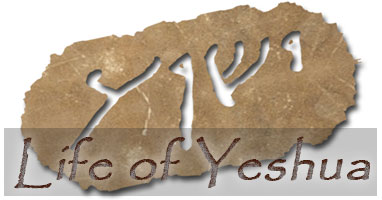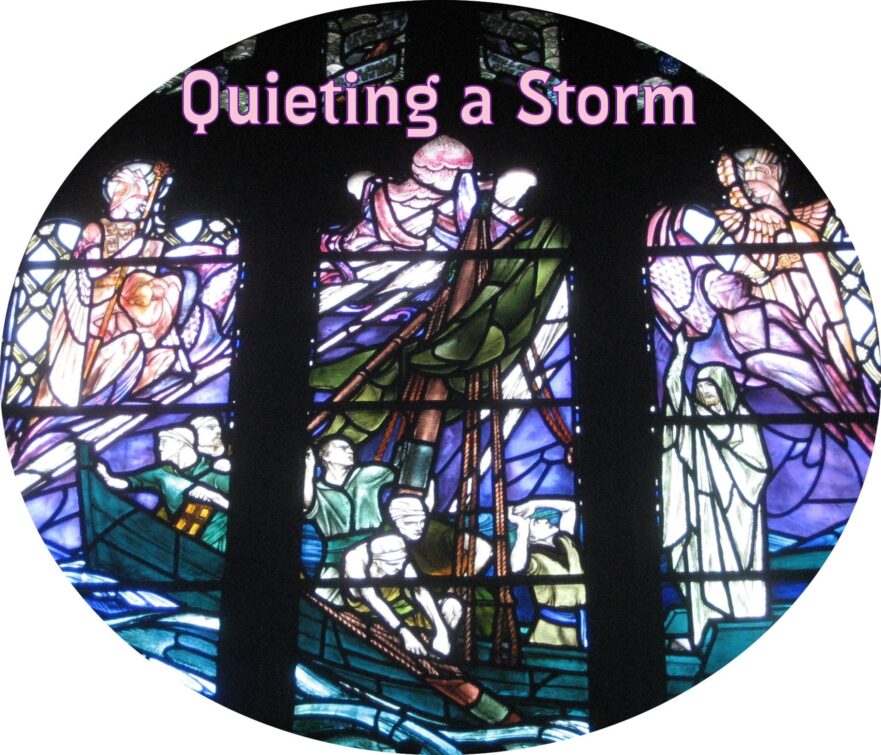How to cite this article:
Joshua N. Tilton and David N. Bivin, “Quieting a Storm,” The Life of Yeshua: A Suggested Reconstruction (Jerusalem Perspective, 2022) [https://www.jerusalemperspective.com/25610/].
Matt. 8:18, 23-27; Mark 4:35-41; Luke 8:22-25
(Huck 49, 50, 105; Aland 89, 90, 136;
Crook 93, 94, 158)[1]
Updated: 28 September 2023
וַיְהִי בַּיָּמִים הָהֵם וַיֵּרֶד לִסְפִינָה הוּא וְתַלְמִידָיו [וַיֹּאמֶר לָהֶם נַעֲבֹר לְעֵבֶר הַיָּם ⟨וַיַּעַבְרוּ⟩] וְהָיוּ בָּאִים וְהִנֵּה סַעַר גָּדוֹל עָמַד עֲלֵיהֶם בַּיָּם לְטֹבְעָן וְהוּא שָׁכַב בְּיַרְכְּתֵי הַסְּפִינָה וַיֵּרָדֵם וַיִּקְרְבוּ וַיָּעִירוּ אוֹתוֹ לֵאמֹר אֲדוֹנֵנוּ אֲדוֹנֵנוּ נֹאבֵד וַיֵּעוֹר וַיִּגְעַר בָּרוּחוֹת וּבַמַּיִם וַיָּנַח [הַיָּם ⟨מִזַּעְפּוֹ⟩] וַיְהִי שָׁלוֹם גָּדוֹל וַיֹּאמֶר לָהֶם הַאֲמִינוּ בֵּאלֹהִים וַיִּירְאוּ הָאֲנָשִׁים יִרְאָה גְדוֹלָה וַיִּתְמְהוּ לֵאמֹר מָה הַדָּבָר הַזֶּה שֶׁהוּא מְצַוֶּה אַף לָרוּחוֹת וְאַף לַמַּיִם וְהֵם שׁוֹמְעִים לוֹ
Sometime around then Yeshua boarded a boat—he and his disciples. [And Yeshua said to them, “Let’s cross over to the opposite shore.” ⟨So they crossed over.⟩] Now as they were sailing, a huge storm overtook them on the lake that was liable to sink them. But Yeshua had lain down at the back of the boat and was sound asleep. So the disciples went to Yeshua and woke him up. “Lord! Lord!” they exclaimed. “We’re all about to die!”
At that, Yeshua woke up and rebuked the blowing winds and splashing waters, whereupon the lake stopped its raging and a profound calm took its place. Then Yeshua said to his disciples, “Trust God!”
Yet the disciples were very much afraid. Looking in awe at one another, they said, “How is it that Yeshua commands the elements and they obey him?”[2]
| Table of Contents |
|
3. Conjectured Stages of Transmission 5. Comment 8. Conclusion |
Reconstruction
To view the reconstructed text of Quieting a Storm click on the link below:
Paid Content
Premium Members and Friends of JP must be logged in to access this content: Login
If you do not have a paid subscription, please consider registering as a Premium Member starting at $10/month (paid monthly) or only $5/month (paid annually): Register
One Time Purchase Rather Than Membership
Rather than purchasing a membership subscription, you may purchase access to this single page for $1.99 USD. To purchase access we strongly encourage users to first register for a free account with JP (Register), which will make the process of accessing your purchase much simpler. Once you have registered you may login and purchase access to this page at this link:
Conclusion
Quieting a Storm is an account of a miraculous deed Jesus accomplished through his steadfast faith in God.[3] The narrative was heavily influenced by the Jonah story, but this influence was not motivated by a theological concern to compare or contrast Jesus with Jonah. The prominent Jonah motifs in Quieting a Storm were rather a literary device intended to engage the audience, who, being familiar with the Jonah story, would be filled with curiosity to see whether and how the two stories differed. The original focus of Quieting a Storm was not on Jesus’ identity but on the power of faith. Jesus, confident in his calling as God’s anointed emissary and in God’s providence, was able to exercise authority over the hostile elements. The disciples were exhorted to deepen their trust in God. In response to the miracle they witnessed the disciples asked one another how it was that Jesus could order the elements and be obeyed. The answer, given in Faith Like a Mustard Seed, which we believe was the sequel to Quieting a Storm in the Hebrew Life of Yeshua, is that anyone who trusts God even a little can do equally extraordinary things.

 Click here to return to The Life of Yeshua: A Suggested Reconstruction main page.
_______________________________________________________
Click here to return to The Life of Yeshua: A Suggested Reconstruction main page.
_______________________________________________________
- [1] For abbreviations and bibliographical references, see “Introduction to ‘The Life of Yeshua: A Suggested Reconstruction.’” ↩
- [2] This translation is a dynamic rendition of our reconstruction of the conjectured Hebrew source that stands behind the Greek of the Synoptic Gospels. It is not a translation of the Greek text of a canonical source. ↩
- [3] Cf. Taylor, 273; Nolland, Luke, 1:401. ↩

































































































